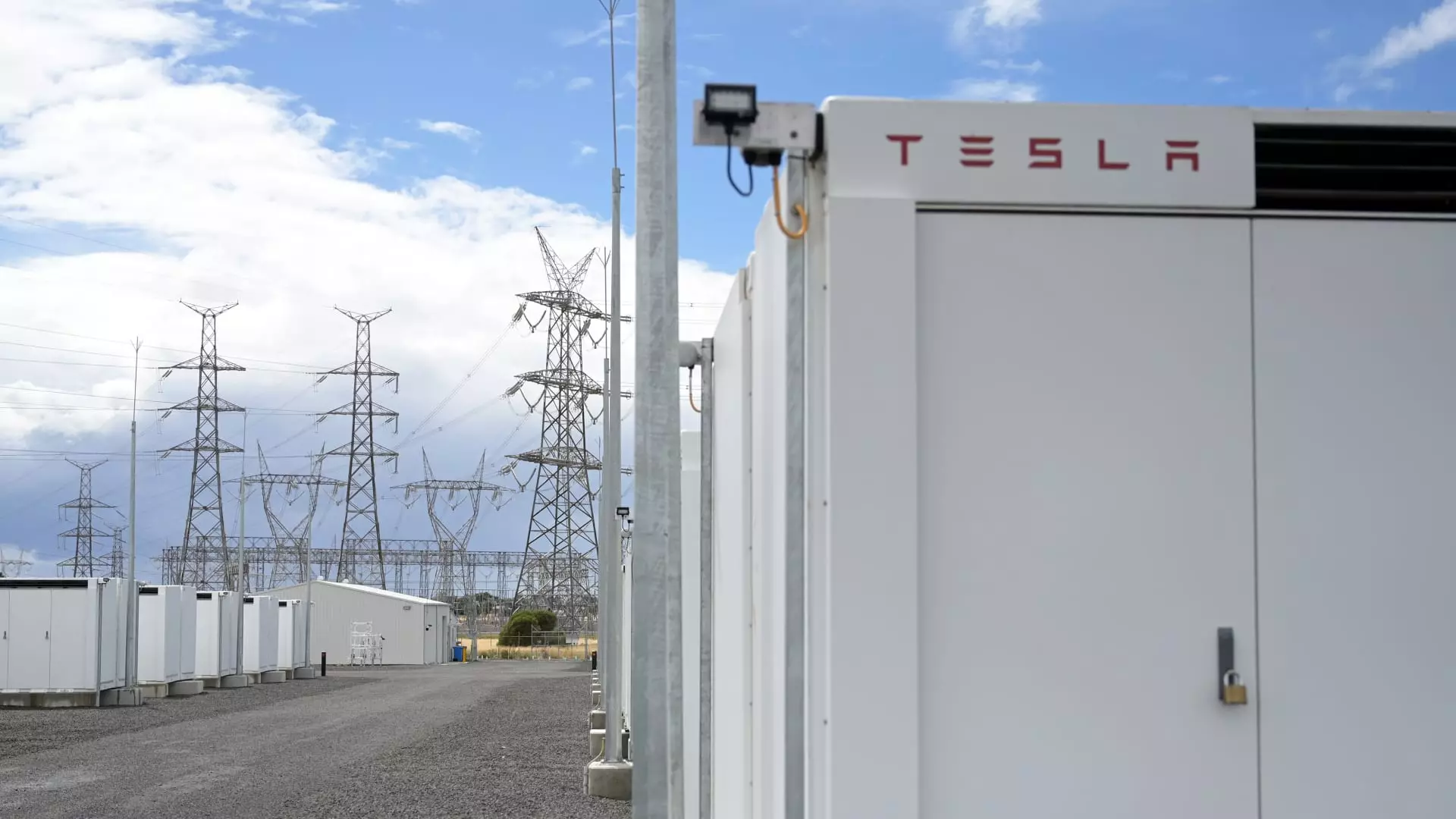Tesla has recently made headlines by securing its inaugural deal to construct a grid-scale battery power plant in China, a move that comes during a turbulent period of strained relations between the U.S. and China. This ambitious project, poised to be the largest of its kind in the nation upon its completion, reflects not just a strategic business decision but also an essential contribution to the evolving energy landscape in China. As both nations grapple with the complexities of trade and geopolitics, Tesla’s venture signifies a unique blend of innovation and collaboration in the face of adversity.
The Mechanics of Utility-Scale Battery Storage
Utility-scale battery energy storage systems play a fundamental role in stabilizing electricity grids. They effectively balance supply and demand, particularly as renewable energy sources, like solar and wind, introduce variability into supply chains. In an era marked by increasing reliance on green energy, these systems become vital to surmount the challenges associated with intermittency. Tesla’s solution, characterized by its advanced Megapack technology, exemplifies a forward-thinking approach to energy management. Each Megapack, capable of delivering a significant one megawatt of power for four hours, is designed to be a crucial asset for energy stability, making it a pixel in the broader picture of smart urban development.
Details of the Strategic Deal
Reportedly valued at 4 billion yuan (approximately $556 million), this deal involves Tesla, the local Shanghai government, and the financing firm China Kangfu International Leasing. It marks a milestone in Tesla’s commitment to enlarging its footprint in the Chinese market, especially at a time when domestic companies, such as CATL and BYD, are rapidly advancing in battery technology and innovation. With CATL holding a dominant position in the global battery market, Tesla’s collaboration with local authorities underscores the intricate web of competition and cooperation that defines the current energy landscape.
Tesla’s Shanghai factory had already made strides by producing over 100 Megapacks in the first quarter of this year, highlighting the company’s robust production capacity. This initiative is not only a testament to Tesla’s engineering prowess but also an illustration of how the company is navigating a complex terrain rife with local competition. While Tesla is actively exporting its battery products to other regions, this domestic project signals an acknowledgment of the untapped potential within the Chinese market.
Geopolitical Implications and Corporate Strategy
The agreement’s significance extends beyond mere figures; it encapsulates the interpersonal dynamics between the United States and China, especially in the context of trade tariffs introduced by former President Trump and the subsequent strains on U.S.-China relations. Elon Musk’s prior proximity to Trump complicates this landscape further, painting a picture of a CEO who must operate at the intersection of business and geopolitics. This venture stands out because, in an industry where competition is fierce, collaboration with local governments becomes not just beneficial but necessary for survival.
China’s energy policies are intensifying in urgency as the government announced ambitious targets to increase battery-powered capacities by significant margins. These developments represent a golden opportunity for Tesla to position itself as a leading player in supplying renewable energy solutions. The market’s expectations are palpable; by 2025, China aims to achieve an additional 5 gigawatts of battery energy supply, a target Tesla’s new project will undoubtedly contribute to.
The Broader Energy Landscape and Future Directions
In a global context, the installation of grid-scale battery systems is poised for explosive growth. With the International Energy Agency reporting a 42-gigawatt increase in global energy storage capacity in 2023, the momentum towards sustainable energy solutions is undeniable. Tesla’s proactive measures in China complement this global trend, positioning the company as a significant contributor to the world’s energy transformation.
As intercontinental demand for battery technology continues to rise, Tesla’s strategic choices in China will likely shape not just its future but also influence the energy market globally. This initiative helps pave the way for innovative energy solutions and strengthens the interconnectedness of technological advancement and ecological responsibility.
Ultimately, Tesla’s venture into grid-scale battery power plants is not merely a corporate expansion; it’s a crucial step towards redefining energy production and consumption in an era where sustainability is paramount. The road ahead is fraught with challenges, but Tesla’s willingness to engage boldly in this competitive environment speaks volumes about its vision for the future of energy worldwide.


Leave a Reply